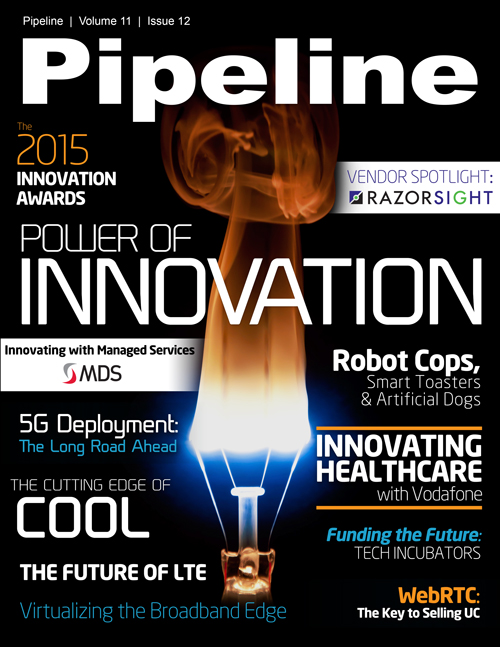Innovating Healthcare with Vodafone
Extending care
Older patients may need round-the-clock supervision, whether in the home or in a hospital. M2M solutions provide a reliable way to keep track of patients, safeguarding their welfare. Mobile devices, such as a GPS locator, can monitor the patient’s location. These devices automatically send alerts in the event of an accident, a fall or if a patient unexpectedly leaves their place of care. For the families of people with degenerative diseases such as dementia, this service offers peace of mind and reassurance — and provides patients with a degree of autonomy.
Here at Vodafone, we recently announced work we are doing with Lively, a provider of smart home and personal emergency response technology, to support its new wearable device that connects to an in-home hub that is pre-installed with a Vodafone M2M SIM. The wearable device syncs with activity sensors designed to be placed on pill boxes, refrigerators and doors. According to Lively, the activity sensors log a person’s daily routines to indicate a range of activities that can be viewed by themselves or by their loved ones, such as when medication is taken and when the user leaves the house.
-
A hub receives activity signals from each of the sensors to compare daily events with normal routines, and provides alerts when activity is out of routine. With the Vodafone M2M technology in the hub, users are able to access information without connecting to the internet, making it simple for people without a broadband connection to set up.
-
The technology is designed to increase the safety and security of elderly people and to give their loved one's peace of mind. It comes as an increasing number of older people are staying in their homes.
These types of innovative and inexpensive connected solutions have the potential to radically change the burden on the health care system as well as associated costs. By evaluating the data and intervening when appropriate, precious dollars can be saved by avoiding unnecessary trips to a clinic or the emergency room. It may be as simple as placing a call to the patients reminding them to take their meds or to measure their blood sugar level.
We are also working with ERT, the leading provider of patient-driven eData systems used to collect electronic assessments from patients in clinical research, to connect the ERT electronic clinical outcome assessment (eCOA) system to our global M2M network. The ERT System provides pharmaceutical trial sponsors with real-time access to higher-quality patient data enabling researchers to make faster decisions with confidence. Currently the ERT eCOA System is used to collect data in 800+ clinical trials in more than 75 countries.
Over the next three years, ERT will deliver thousands of Intel tablets embedded and bundled with ERT SitePad® study-specific software application and the Vodafone SIM, to clinical research sites across North and South America, Europe, Asia, and Africa. ERT will manage the performance and speed of global connections through the Vodafone global M2M platform to help ensure rapid data transmissions for maximum ease of use and satisfaction for patients and site staff. Clinical trial participants use the ERT SitePad System to record information about their symptoms and experiences in their trial. The data collected is securely transmitted to StudyWorks™, the ERT study management and patient data portal, over a secure Vodafone global M2M network where all patient trial data are available for real-time review of protocol compliance, safety tracking and trial management by study stakeholders.
This approach gives pharmaceutical companies and regulators far greater real-time insight into drug trials and greatly increases confidence in the clinical outcome assessment data gleaned. Globally, approximately 40%-50% of studies that rely on clinical outcome assessments as endpoints are using electronic systems to collect those data streams, with the remainder of studies still using paper, which is error-prone and costly. Adoption of electronic systems are expected to increase steadily over the next five to 10 years, despite the highly-regulated and cautious pace at which change takes place within the industry.
Many of the benefits of eClinical trials are obvious including eliminating inconsistent, illegible and unattributable data along with the ability to ensure data is collected contemporaneously as specified by the clinical protocol using alarms, reminders, and timestamps. In addition to increased protocol compliance, the largest advantage of eCOA systems over paper is the ability for site and sponsor staff to see patient reported data in real-time between visits and to proactively track both compliance and safety between site visits – something that isn’t possible with paper methods.



















